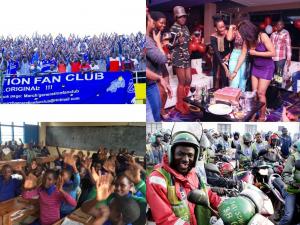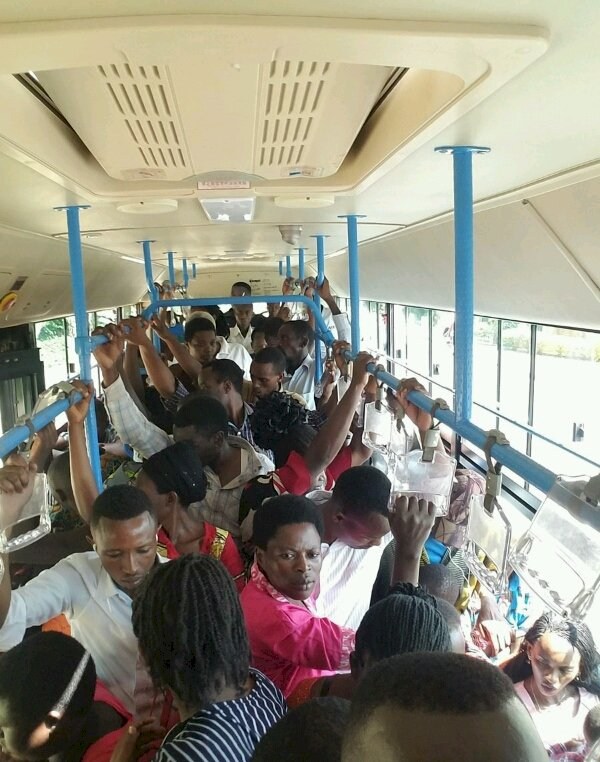
What “Loosening” COVID-19 Lockdown Might Look Like
Since March 21, Rwanda has been on total lockdown as government attempts to control spread of the COVID-19 virus. But instead of the keeping a lid on the pandemic, there is a new explosion with daily infections not seen before.
On Monday alone, 16 new cases were uncovered. Two days earlier, 22 cases were identified. Government isn’t giving out much information about where these infections are coming from, apart from saying they are from truck drivers of cargo trucks entering from out bringing in goods.
Even with this infection source, government is not mentioning exactly which side. With geopolitical flight still ongoing between Rwanda and Uganda, more than 80% of Rwanda’s imports come via Dar es Salaam Tanzania, through Rusumo border.
It is easy to determine that indeed, Tanzania is source of the new infections, more so that Tanzania President John Pombe Magufuli has refused to lockdown his country, urging the country instead into prayer. He also refused to lockdown Dar es Salaam, the region’s economic powerhouse.
However, it sounds doubtable all the new infections are only from the cargo sector. It is very clear government is seeing more local infections. In his unusual virtual press conference on Monday, President Paul Kagame didn’t not give away much as to whether the lockdown will be lifted on this Thursday.
He hinted there would be a “loosening” of the restrictions, but that any new changes would put into consideration the fact that the economic situation cannot be sustained, and ensuring the control now on the virus spread is not lost.
What does Kagame’s loosening mean? The key guiding factor is “social distance”. With it in mind, a lot of the things that Rwandans did before the virus are not possible again. In as long as the coronavirus is still around, and government is also keen to make sure, infections don’t grow because the health sector cannot cope, then tough restrictions on distance between people are going to be enforced.
Taxis and buses: In Kigali, there are several public Coaster taxis and large buses that ply Kigali’s suburbs. Especial mornings and evenings when everyone is going to work or returning home, they are a nightmare. A Coaster taxi will not carry more than 10 passengers, down from 24. A bus, won’t be allowed to carry standing passengers – cutting load by over half.

Markets: our markets are terribly overcrowded. There is no way government will allow this to continue. With a 1.5 meter distance recommended for such places, it means a market with 500 stalls, will now have sellers cut down to 200. The usual flood of buyers will not be the same as before; there will be markings to keep distance between arriving buyers. People have to brace themselves for a much longer stay at the market.
Motos: the quickest way to get around Kigali and all Rwanda’s urban centers is by motorcycle taxi (known locally as moto). It is difficult to see how motos are coming back soon. But considering they feed tens of thousands of families, it’s also difficult to see how government can ban them. A tough balance may be struck; a moto rider may be required to wear face mask, in addition to helmet. The passenger may be required to wear helmet without glass cover, and face mask.
Provincial buses: buses which travel from Kigali to upcountry and within the rural areas, won’t the left to carry passengers as before. A Coaster will carry no more than 15 people, down from over 20. Big buses may only be allowed to carry 60% of previous number, or even less. But then, how will they make money? Unless government removes some taxes and periodic payments to bus associations are also eliminated or heavily cut, no one will be willing to put a bus on the road if it doesn’t make money.
Schools: For now, schools may be kept closed. It is unimaginable to see government suddenly telling parents to send their kids back to the crowded boarding schools. Even with day schools, the environments there can be breeding ground for infections. Very tough measures are expected to be introduced for schools to keep social distance and completely minimize contacts between students in boarding schools and the outside world.
Inter-country regional buses: there are buses plying Kigali-Uganda route, Kigali-Tanzania, and the Kigali-Kenya. It is hard to see how these buses are allowed back soon. With countries not having same control policies in place, for example Tanzania where infections are increasing, Rwanda is unlikely to open for the buses very soon.
Borders: for now, cargo will continue to come. And the targeted mass testing for this sector will continue. But the borders are going to remain closed for sometime.
Offices: the work place environment has changed for ever, if we are working on the premise that social distance is a rule government won’t give up on. With President Kagame and his government not shying away from implementing tough lockdown measures, work places are going to change for ever. An office that had 20 staff, will only be allowed to open if less then 10 are working in it. There is indication government offices and private companies may maintain current working-from-home model.
Banks: the crowds that were common inside banks are no more. No clients will be allowed to sit inside bank premises, except those at the counter being served. The spaced lines outside will be much longer. The time spent at the bank will be more; from about an hour before the pandemic, to over 3 hours. As consequence, over time, the government’s long cry for cashless economy, may be realised as more and more people prefer to work with their banks or exchange cash virtually.
Bars: it is difficult to see how bars will be opening soon. Same with clubs and all fun joints may remain closed. But if they open, there may be no music.
Restaurants: the restaurants have been operating, but no clients allowed to stay; they had to buy takeaway meals. The restaurants will only ever be opened under VERY STRICT rules; space between tables will have to be at least 2 meters. Clients can’t be very close, which brings the question; is the restaurant as we knew it, dead forever up until the virus’ treatment is found?
Hotels: they will be allowed to open, but required to implement strick distance measures.
Concerts: the music and entertainment industry may have to wait, unless they will be willing to have concerts with a meter between revellers
Stadiums: the national league is already suspended and the 2020 championship put off this year. How games will be played is everyone’s guess. Could they be played with fans? Not sure how this works in a place like Rwanda!
The bottomline here is that even if government decides on “loosening” the restrictions as Kagame indicated, life in Rwanda will never be the same again. A new model of living is going to have to emerge. In as long as the virus has no cure yet, and a government that is keen not to take chances, life in Rwanda and elsewhere is not going back to the way it was before the virus emerged in October 2019.
By The Chronicles
